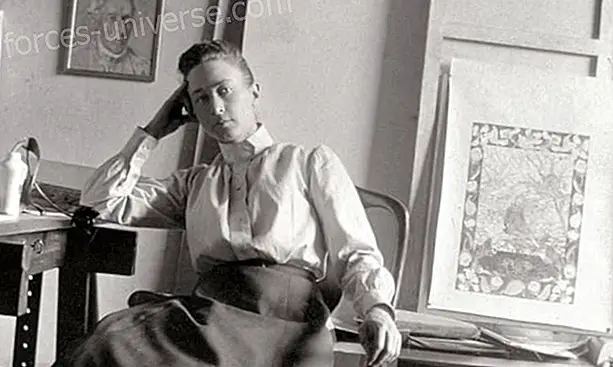
The spiritual journey has been a source of personal fascination for many years. I arrived at four in the morning to sing in Buddhist monasteries, walked with the pilgrims of the Camino de Santiago, visited the tombs of the Sufi saints of Kairouam. In more than two decades experiencing such sites and writing about spiritual guidance trips I have known the reasons why people continue to travel spiritually. By Koncha Pinos-Pey for MIMIND Space.
If you go to Angkor Wat in Cambodia or to Mecca, it will cost you quite a ticket. But if you think a little, surely you have a natural spiritual retreat of some kind nearby, be it an old Catholic abbey, a Buddhist meditation center, a conference center with yoga programs, a forest.
Most religious communities - if you ask in advance - welcome visitors. In fact, many Christian orders such as the Benedictines believed that the traveler was "the Christ" himself. Some only demand a voluntary donation, and others will allow you to work in exchange for accommodation and meals. At a time when many people cannot afford typical vacations, a weekend of spiritual retreat can be available to anyone and is also sustainable.
Spiritual centers are also energetic places. Many retreat centers are located in beautiful places on the planet: like the Abbey of Montserrat in Barcelona, or the island of Iona on the Coast of Scotland. Instead of spending a vacation fighting the crowd and dragging luggage, you can recharge your batteries by staying in a rural shelter, where silence is only interrupted by the wind or the soft clink of a cow's cowbell.
The sacred places of the earth will always be visited. Sites like Mecca, Mount Sinai, BodhGaya, Rome, still draw legions of pilgrims, but also places as unusual as the Chapel of St. Paul, in front of it where the Twin Towers in New York fell, or Martin Luther's tomb King Jr., in Atlanta. Some travelers like to create their own spiritual journey by traveling to where their grandparents come from, or visiting that childhood home.
We all pilgrimage
More and more young people go to the sacred places. It's funny but university students have changed exotic and legendary trips to sacred places, so many parents may consider sending their young people on a spiritual adventure.
Countries that have high and low incomes, pilgrim alike. The form of spiritual journey is actually an ancient way of knowing and coming into contact with the other, beyond social class . Most religions recognize the essential value of the pilgrimage: Muslims traveling to Mecca, Jews to Jerusalem, Christians traveling to Rome, Buddhists to sites associated with the life of Buddha.
These spiritual trips are very different from ordinary trips. In a time when it is very easy to get on a plane and put you anywhere in the world, a slow spiritual pilgrimage is a reminder of the praise of slowness in deliberate company. Do you have a problem that you don't know how to solve with your partner? Take the backpack and walk. The purpose of that trip is usually not only to rest or relax - but it can also happen - but to grow inwardly. You can start with the questions: Who am I? What is my purpose in life? What do i need to know? And that's fine… Let yourself go into the secret of the pilgrimage, because if a trip is undertaken consciously and with the heart, the seeker finds what he is looking for.
Black Moose, the great chief Sioux said: “You know you are ready to go on a pilgrimage because animals talk. It is time to fly because the crows scream, and that message cannot be ignored. ” Maybe it's time for you to go on a pilgrimage, too?
When to go on pilgrimage
All cultures recognize certain transition points in our lives when we are destined to attend doors or matters of the spirit. Teenagers who enter adulthood, adults who enter maturity, those who go to the end of their lives ... everyone is always ready to go on a pilgrimage. There are also those who have had a strong push in their lives, and reluctantly pilgrimage: divorces, job losses. All these experiences without exclusion can open our hearts and souls to new ideas that are found within the pilgrimage.
What places are those that call you? What dream do you want to fulfill? What purpose do you think you still have pending? Listen deeply to the little whisper within you, and that will be the one that will guide you where you need to go.
When making your plans, remember that a pilgrimage is not an escape -as many do-, it is not necessary to travel great distances. A pilgrimage is a journey with a conscious purpose, and the journey begins in the dining room of your house. Those pilgrims who enter a liminal state, work psychically with a flow of their identity in the midst of thousands of possibilities. That threshold between the worlds is a sacred ground, and has the purpose of honoring the earth with ritual, silence and prayer.
Reading and reflecting before leaving is fine, prepare your mind and your spirit ... But as long as you take the first steps, be aware that every moment is an uncertainty. Practice the discipline of gratitude, seek the grace of the little things that are capable of shining through a cup of hot coffee.
When you return, your return may not be easy; Take a few days of adjustment. The trip may have changed you and those who receive you no longer know very well where to take you. But if the pilgrim takes his time, he can find a way to share his wisdom and knowledge with others, his newly discovered Incognito Land.
All our life is destined to be a pilgrimage, a search for the divine in ordinary and extraordinary moments. To live is to give up control to life, to trust the trip. Joseph Campbell - the scholar of ancient myths - tells that once, after a conference, a lady came forward to tell him about his next pilgrimage to Greece. He had planned until the last moment, including the time he was going to visit each place. In the end, Campbell took her hand and said: "Madam, I sincerely hope that your trip does not go as you planned."
Campbell, who was a master of the inner journey, knew how to leave the fertile emptiness and the impermanence of the road. While we can plan all the details of our trip, we are controlling. We do not know which partners we will meet, what dangers we will face, what mysteries await us. We must be open to life, even if that means we are disappointed, scared or confused.
Going on a pilgrimage is putting ourselves in the hands of the Universe, trusting that the path we have to find will appear before us.
Spiritual trips Why travel spiritually?






